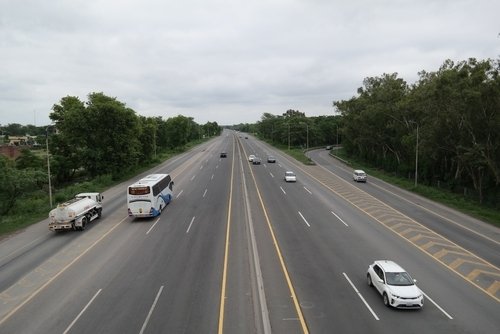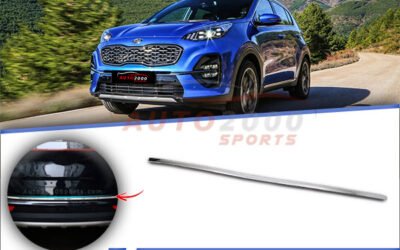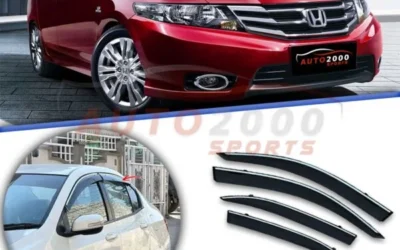
Dozing: Leading Cause of Accidents on Lahore-Multan M3
Motorways play a vital role in connecting cities across Pakistan, facilitating a high volume of traffic each day. Among these, the Lahore-Multan Motorway (M3) stands out as a major thoroughfare for both commercial and private vehicles. However, with this increased connectivity comes the unfortunate reality of traffic accidents. According to recent data shared by the National Highway and Motorway Police (NHMP), dozing at the wheel is emerging as the leading cause of accidents on M3. This blog aims to delve into the major reasons behind accidents on this motorway and suggests measures to reduce them, particularly focusing on the issue of driver fatigue.
Major Causes of Accidents
The NHMP data provides insights into the factors contributing to accidents on the Lahore-Multan Motorway:
Dozing at the Wheel: Accounting for 43.42% of accidents, dozing is by far the most common reason for mishaps. Long stretches of uninterrupted road and late-night driving often lead drivers to nod off, especially if they are already sleep-deprived.
Careless Driving: Around 27.63% of accidents are attributed to reckless or careless driving. Drivers often fail to observe traffic rules or misjudge speeds and distances, leading to collisions.
Tyre Bursts and Wheel Problems: Mechanical issues like tyre bursts account for 14.47% of the accidents. Poor tyre maintenance, underinflation, and overheating are typical causes of these incidents.
Pedestrian Crossings: Although less frequent, pedestrian crossings contribute to 6.58% of accidents. Unauthorized crossings by pedestrians are a serious risk, especially at night when visibility is low.
Slippery Roads: Wet or slippery roads, often caused by rain, contribute to 5.26% of the accidents on the motorway.
Mechanical Faults: Various mechanical faults, such as brake failure or suspension issues, make up 2.63% of the accidents.
Timing of Accidents
The NHMP data further reveals that most accidents involving dozing at the wheel occur between 12 am and 6 am. This period aligns with the natural human sleep cycle, where the body is inclined to rest. The lack of traffic during these hours may also lull drivers into a false sense of security, making them more susceptible to fatigue.
Precautionary Measures to Combat Dozing at the Wheel
Driver fatigue is a serious problem, but it is also preventable. Here are several measures that can help reduce the likelihood of dozing-related accidents on Motorway M3:
Take Regular Breaks: Drivers should stop for a break every 2-3 hours for about 15-30 minutes. During this time, it’s essential to stretch, move around, and rehydrate to stay alert.
Stay Hydrated: Drinking plenty of water helps keep the body awake and alert. Avoid beverages that can cause energy crashes, such as caffeine and sugary drinks, which may provide short bursts of energy but often result in fatigue later.
Ergonomics Matter: Adjust the seat height, lumbar support, and mirrors before starting the journey. Proper seating posture can prevent fatigue and make the ride more comfortable.
Passenger Involvement: Passengers can play a crucial role in preventing accidents. They should remain vigilant and alert the driver if they notice signs of fatigue.
Use Anti-Dozing Devices: Modern technology offers various anti-dozing solutions, such as steering wheel alarms or driver monitoring systems. These devices alert the driver if they start to drift off.
Steps Taken by NHMP
The NHMP, in collaboration with PakWheels, is taking proactive steps to prevent accidents caused by dozing. These efforts include:
Providing Refreshing Face Washes: Available at motorway rest stops, these products are designed to help drivers stay alert.
Free Chewing Gum: To help combat drowsiness, NHMP officers are distributing chewing gum at toll booths and rest areas. Chewing gum can increase alertness by keeping the mouth active.
Vehicle Inspections: Drivers are encouraged to regularly check the condition of their vehicles, including tyre pressure, brakes, and suspension. NHMP officers at rest stops are available to offer assistance and advice.
Stay Safe and Informed
To remain updated on the latest safety guidelines, traffic updates, and more, stay connected with Auto 2000. We are dedicated to providing you with not only top-quality automotive products but also the information you need to ensure a safe and pleasant journey. Remember, your safety on the road is our top priority, and staying informed is the first step to avoiding accidents.
For more updates and the latest news about road safety and vehicle care, visit Auto 2000’s website regularly. Stay connected with us for a safe and comfortable driving experience.












LEAVE A COMMENT